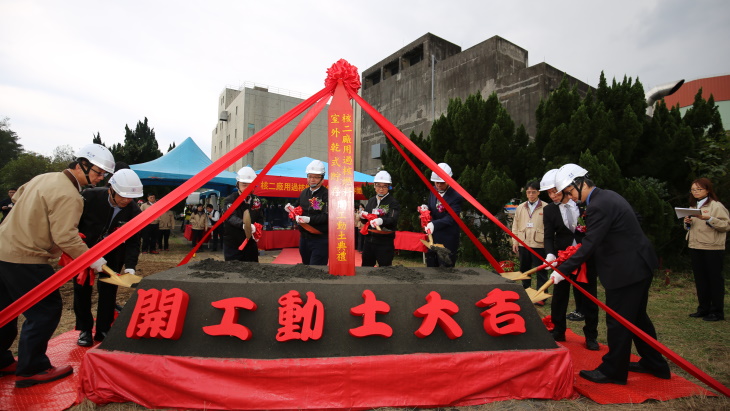Thursday, January 2, 2025
A groundbreaking ceremony was held to mark the start of the long-delayed construction of an outdoor dry storage facility for spent nuclear fuel at Taiwan’s shut down Kuosheng Nuclear Power Plant.
_63301.jpg)
In November 2010, Taiwan Power Company (Taipower) signed a contract with the US company NAC International Inc to supply Magnastor spent fuel storage systems to its Kuosheng plant. The agreement calls for a complete dry storage project solution of 27 Magnastor systems (each capable of storing 87 bundles of spent nuclear fuel), including engineering, licensing, hardware, facility design and construction, fuel This included loading work.
The facility’s water and soil conservation plan was approved by the Agriculture Commission in 2014. After nine years of deliberations, the construction site wastewater pollution reduction plan was approved by the New Taipei City government in August last year, and construction began. The application was approved in November.
Civil construction of the facility is expected to be completed in 2026, pending New Taipei City approval. Once the completion certificate is issued by the government, a trial run test (including low-temperature and high-temperature tests) will be conducted and an application will be made to the Nuclear Safety Commission for an operation permit. Taipower plans to obtain a license in 2027.
Kuusheng Unit 1, a 985 MWe boiling water reactor (BWR), was scheduled to be shut down when its 40-year operating license expires on December 27, 2021, in accordance with Taiwan’s nuclear phase-out policy. , was forced to close six months ago. This is due to a lack of storage space for the unit’s spent fuel pool.
Unit 2 of the power plant, also a 985 MWe BWR, was shut down in March 2023 due to the expiration of its 40-year operating license.
The plant’s decommissioning plan included the construction of a dry storage facility for spent fuel. However, construction of the facility was delayed due to a dispute between Taipower and the New Taipei City government, which opposes a permanent spent fuel storage facility within its jurisdiction.
“Only after completion and operation permit has been obtained, the reactor’s core fuel can be removed in stages and decommissioning work can be fully carried out,” Thai Power said.




